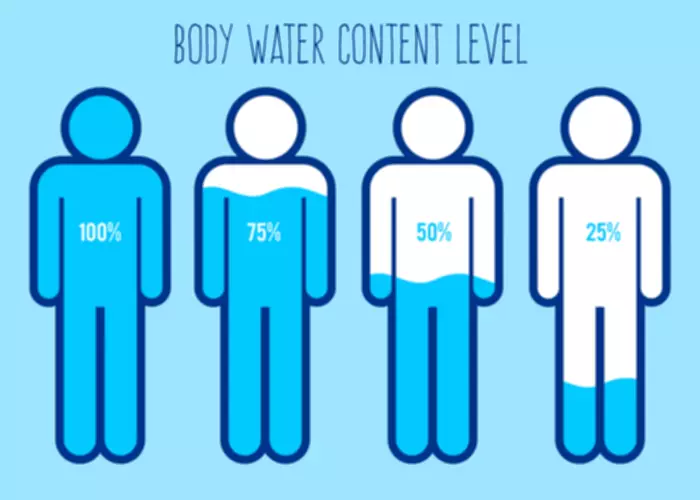Long-term alcohol use also can lead to an increased risk of developing arrhythmias, which are irregular heartbeats, as well as cardiomyopathy, a stretching or drooping of the heart. When structural changes take place, it affects how well the blood pumps blood throughout the rest of the body. The effects of https://ecosoberhouse.com/ alcohol consumption on blood pressure and heart rate can last up to 13 hours after drinking, and its effects on heart rate can last up to 24 hours after drinking. Therefore, a person should speak with a healthcare professional about whether it is safe for them to drink alcohol while taking medications.
Top Reads in Health Education

Chronic alcohol use causes hormone imbalances in both men and women and leads to problems with fertility. Binge drinking, or having more than five drinks in a row, also makes blood thinners and alcohol getting AFib more likely. Doctors believe booze disrupts your heart’s natural pacemaker — the electrical signals that are supposed to keep it beating at the right pace.
How can I take blood thinners safely?
‘Holiday heart’ and other drinking health hazards you should know about before cocktail season – CBC.ca
‘Holiday heart’ and other drinking health hazards you should know about before cocktail season.
Posted: Wed, 22 Nov 2017 08:00:00 GMT [source]
Short-term, you can expect an increase in blood pressure and higher cortisol levels. Another reason for the increase in blood pressure and heart rate is how alcohol affects hormones, specifically the stress hormone known as cortisol. Cortisol is released when a person feels physical or psychological stress so that they are prepared for a threat to their well-being. This physiological response primes a person to be alert and ready to act. Alcohol can cause an increased release of cortisol and, in turn, higher blood pressure and a faster heartbeat. Short-term effects occur because of how alcohol impacts receptors in the blood.
- Although alcohol thins the blood, long-term use can have a different effect.
- He is a Fellow of the American College of Cardiology (FACC) and American board-certified in general cardiology, echocardiography, and stress-testing, and nuclear cardiology.
- Both alcohol and blood thinners like warfarin (Coumadin) thin your blood.
- Packed with potassium, bananas can help improve blood flow by lowering blood pressure.
What To Avoid When Taking a Blood Thinner
Alcohol use should be limited while on Plavix, and specific cases should be discussed with a doctor. Alcohol increases the effects of Pradaxa through an unknown mechanism. This increases your risk of bleeding and makes it advisable to avoid mixing alcohol and Pradaxa.
Difference Between Brand-Name and Generic Medications
- 9 more dairy foods and eggs high in vitamin K Dairy foods and eggs are decent sources of vitamin K2.
- Blood thinners increase the risk of excessive bleeding, particularly for at risk individuals or people undergoing surgery.
- Ask them about other steps you should take to stay safe while you’re on this medication.
- That’s a dangerous type of blood clot that often forms in the leg.
This article explores how alcohol affects the ability of the blood to clot. Finally, it answers some common questions about alcohol and blood thinning. When you’re injured, blood cells called platelets rush to the injury site. Platelets also release proteins called clotting factors that form a plug to close the hole. Therefore, people should always check with a doctor or pharmacist whether it is safe to drink alcohol with a particular blood thinner. When women consume even moderate levels of alcohol, their risk for various cancers goes up, including digestive, breast and pancreatic cancer, among other health problems – and even death.
Risks and Side Effects of Mixing Blood Thinners and Alcohol

Changing up how much vitamin K you’re getting each day can prevent warfarin from doing its job. Dr. Harb Harb is a non-invasive cardiologist working within the Northwell Health System in New York, specifically at the North Shore University Hospital, affiliated with Hofstra University. Dr. Harb moved to New York City, choosing a career path in academic medicine as an assistant professor at the Donald and Barbara Zucker School of Medicine at Hofstra/Northwell. There, he teaches and works with cardiovascular and medical trainees as well as medical students. He is a Fellow of the American College of Cardiology (FACC) and American board-certified in general cardiology, echocardiography, and stress-testing, and nuclear cardiology. He is a registered physician in vascular interpretation (RPVI).
Eating foods with too much vitamin K
There is also increasing evidence that addictive substances can interact with cycling sex hormones such as estrogen and progesterone. For instance, research has shown that when estrogen levels are high, like before ovulation, alcohol might feel more rewarding, which could drive higher levels of binge drinking. Women may be more likely than men to have some of the most catastrophic health effects caused by alcohol use, such as liver issues, cardiovascular disease and cancer. Middle-aged women are now at the highest risk for binge drinking compared with other populations. Talk to a healthcare provider if you are concerned about your drinking or that of a loved one. Professional treatments and support can help you overcome alcohol misuse and alcohol use disorder and improve your overall health and well-being.
The American Heart Association doesn’t recommend drinking alcohol solely to protect your blood vessels and improve your circulation. But having more than three alcoholic drinks daily could increase your risk for a type of stroke caused by bleeding in the brain (hemorrhagic strokes). But sometimes, a blood clot can form in — or travel to — an artery that supplies your heart or brain with oxygen-rich blood. Researchers have found that low-to-moderate drinking could reduce certain processes that lead to heart disease and inflammation.
More don’ts if you take a blood thinner
- The effects of aspirin are increased by alcohol, making it more likely for the effects to reach a toxic level.
- Alcohol consumption has a profound effect on various systems of the body, with the liver and brain being particularly vulnerable.
- In general, all blood thinners work by either blocking or inactivating part of the system that forms blood clots.
- Roughly 1 in 5 U.S. adults report binge drinking at least once a week, with an average of seven drinks per binge episode.
- Researchers at University of California, Davis have found that dark chocolate has a similar effect.

 Contato por WhatsApp
Contato por WhatsApp
Faça um comentário